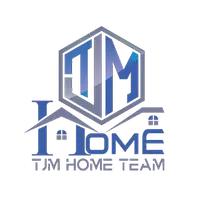Blog > Your Ultimate Guide to 1031 Exchange in the Greater Tampa Bay Area. Common Q and A with the TJM Home Team.
Your Ultimate Guide to 1031 Exchange in the Greater Tampa Bay Area. Common Q and A with the TJM Home Team.
by
Greetings, savvy investors! 🌟
Are you contemplating delving into the lucrative world of 1031 Exchanges? Thomas J. Morillo and the expert TJM Home Team are here with a comprehensive Q&A that guides you through the intricacies of 1031 exchanges in the dynamic Greater Tampa Bay real estate market. Let’s unravel the answers to your pressing questions!
1031 Exchanges Demystified: Your Comprehensive Q&A Guide 💡
Q1: What exactly is a 1031 Exchange?
A1: A strategy to defer capital gains tax, it allows you to reinvest the proceeds from the sale of an investment property into another like-kind property without an immediate tax burden.
Q2: Which properties are eligible for a 1031 Exchange?
A2: Eligible properties include commercial, residential, industrial assets, and vacant land used for business or investment purposes. However, personal residences and properties held primarily for resale do not qualify.
Q3: What are the time constraints involved in a 1031 Exchange?
A3: Post the sale of your initial property, a 45-day window exists to identify potential replacements, followed by 180 days to finalize the purchase.
Q4: Can multiple replacement properties be considered?
A4: Yes, up to three properties can be identified irrespective of their value, with the possibility to list more if certain value conditions are met.
Q5: Can the 1031 Exchange facilitate the trade of multiple properties into one?
A5: Absolutely, as long as the necessary value criteria are satisfied.
Q6: What happens if not all proceeds are invested in the new property?
A6: The unused portion becomes subject to capital gains tax.
Q7: Is interstate property exchange allowed?
A7: Yes, geographical boundaries do not restrict the exchange, provided the properties are utilized for business or investment.
Q8: Can a lesser-value property be acquired?
A8: Yes, but the value difference, known as "boot," is taxable.
Q9: Can the newly acquired property serve as a primary residence?
A9: Initially, the property must serve business or investment purposes, prohibiting immediate use as a primary residence.
Q10: What role does a Qualified Intermediary play?
A10: As a third party, a QI manages the sale proceeds and assures compliance with IRS regulations, facilitating a smooth transition.
Q11: Are different property types interchangeable in a 1031 Exchange?
A11: No, only "like-kind" properties, sharing similar characteristics or nature, qualify for the exchange.
Q12: Is there a usage cap on the 1031 Exchange?
A12: No, you can engage in multiple exchanges, a strategy often termed as "swap till you drop."
Q13: Can an initiated 1031 Exchange be reversed?
A13: After the property sale closes, reversing the exchange is not permissible.
Ready to Navigate the 1031 Exchange Journey in the Greater Tampa Bay Area? 🌊
Now equipped with foundational knowledge on the 1031 Exchange process, are you eager to explore further? Thomas J. Morillo and the TJM Home Team stand ready to assist you at every juncture, ensuring a successful and beneficial transition.
📞 Connect with us today to personalize your 1031 Exchange plan and embark on a journey of exponential financial growth. Reach out to Thomas J. Morillo & the TJM Home Team at [727-560-4944
